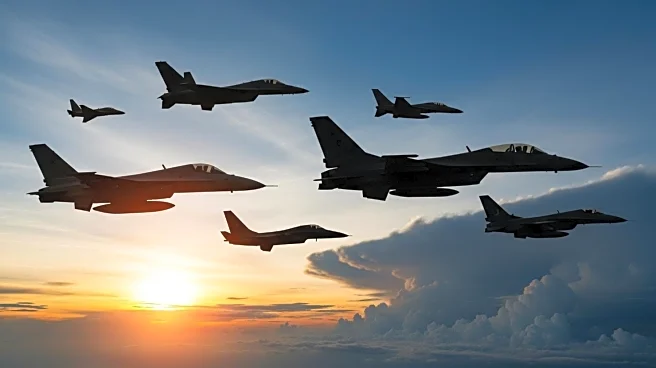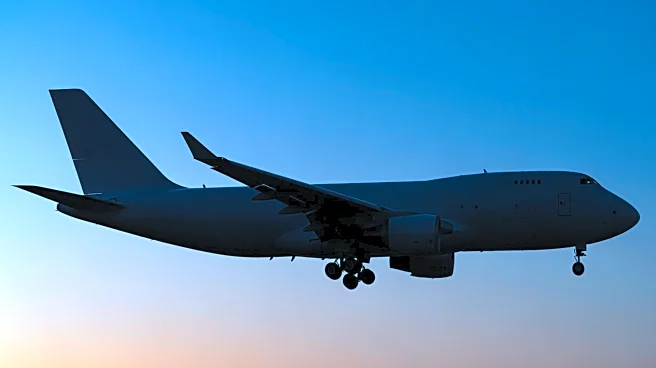What's Happening?
Leaked U.S. documents have revealed that Jordan, along with five other Arab states, has been participating in a secret military cooperation network with Israel, known as the 'Regional Security Construct.' This initiative, coordinated by U.S. Central Command (CENTCOM), involves intelligence sharing and joint military exercises aimed at countering Iran's influence in the region. Despite public criticism of Israel during the Gaza war, Saudi Arabia, Egypt, the United Arab Emirates, Bahrain, and Qatar have been involved in this classified framework. The network has organized regional security summits and training exercises over the past three years, including activities at Qatar’s Al-Udeid Air Base and Fort Campbell in Kentucky. The cooperation focuses on real-time intelligence coordination, radar connectivity, cyber communication, and missile defense systems.
Why It's Important?
The revelation of this secret cooperation highlights the complex geopolitical dynamics in the Middle East, where public rhetoric often contrasts with behind-the-scenes alliances. For the U.S., this network represents an effort to strengthen regional security ties and counter Iranian influence, while promoting a narrative of cooperation and prosperity. The involvement of Arab states in military activities with Israel, despite public condemnation, underscores their reliance on U.S. security guarantees and concerns over Iran's growing power. This cooperation could potentially lead to further normalization of relations between Israel and Arab countries, building on the Abraham Accords and enhancing regional stability.
What's Next?
Future plans for the 'Regional Security Construct' include establishing a 'Middle East Cyber Center' and a regional 'Information Fusion Center' to facilitate real-time data-sharing and digital defense training. The U.S. has recently deployed troops to oversee cease-fire implementation in Gaza, and President Trump has suggested that Arab nations involved in the network might contribute forces to a future international mission in the region. However, tensions remain, particularly after an Israeli airstrike in Doha targeting Hamas officials, which strained relations with Qatar. Continued diplomatic efforts and strategic adjustments will be necessary to maintain the cooperation and address any arising conflicts.
Beyond the Headlines
The secret cooperation raises ethical and political questions about transparency and the true nature of alliances in the Middle East. While publicly denouncing Israel, Arab states are engaging in military collaboration that could reshape regional power dynamics. This duality reflects the delicate balance these countries must maintain between public opinion and strategic interests. The initiative also highlights the role of the U.S. in facilitating such covert operations, emphasizing its influence in regional security matters.









